ADSactly Literature: For the Love of Cult Authors: Roald Dahl
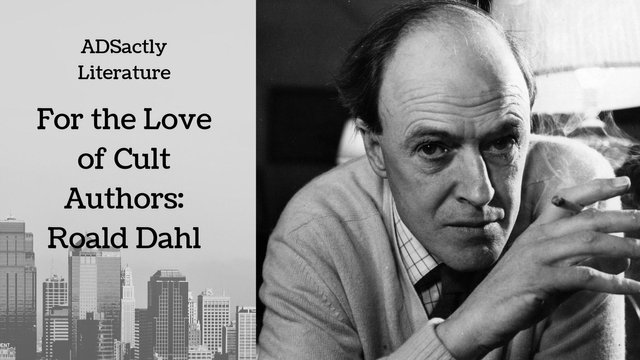
What exactly is a “cult author”? Not someone who writes about cults, certainly, but rather a writer who had (either during his lifetime or posthumously) gathered a cult following – squadrons of rabid fans re-reading his or her books over and over and quoting them to anyone who’s willing to listen.
It’s tricky to define exactly what makes a cult book, but chances are you’ll know when you read one. It’s often something obscure, because our society is obsessed with the strange and quirky. A cult author often comes at ya from the fringes of society, they write about the subcultures, about the downtrodden, about the underground. They represent that world you’d kinda like to inhabit, but are often too scared to do so. And often enough, they become the fascination of a lifetime.
In this @adsactly series, we’ve taken a look at several “cult authors” who mesmerize audiences well after their deaths. And I think with this post, we have finally reached the end of our series. In the last few installments of this series about cult authors, we have focused on children’s authors, mostly, and I think they’re a very important part of literary world, because a child who loves to read will also be an adult who loves to read. So, what your read in your youth is really very important.
And I can’t think of a single children’s author more memorable or impressive than Roald Dahl. It’s incredible to think how many generations have grown up with Dahl’s stories, you know?
From the publication of Charlie and the Chocolate Factory in 1964, his unique, often crazy writing has managed to delight thousands of kids all over the world.
But Roald Dahl himself had a most unhappy childhood. He was born in Cardiff, to Norwegian immigrants, in 1916. His father died when Dahl was only three years old (shortly after the death of Roald’s older sister, Astri, from appendicitis). Dahl’s mother gave birth to a baby girl later that year and decided to stay in England to raise her children, as per her late husband’s wishes.
From a very young age, Roald Dahl had a penchant for making trouble and pulling pranks, which often got him into real trouble at school. In 1924, when Dahl was eight, he and several other students of the Llandaff Cathedral School were severely beaten by the headmaster after sneaking a dead mouse into a candy jar at the local store. After this unfortunate event, Dahl’s mother moved him to St. Peter’s Boarding School and later to Repton School, in Derbyshire.
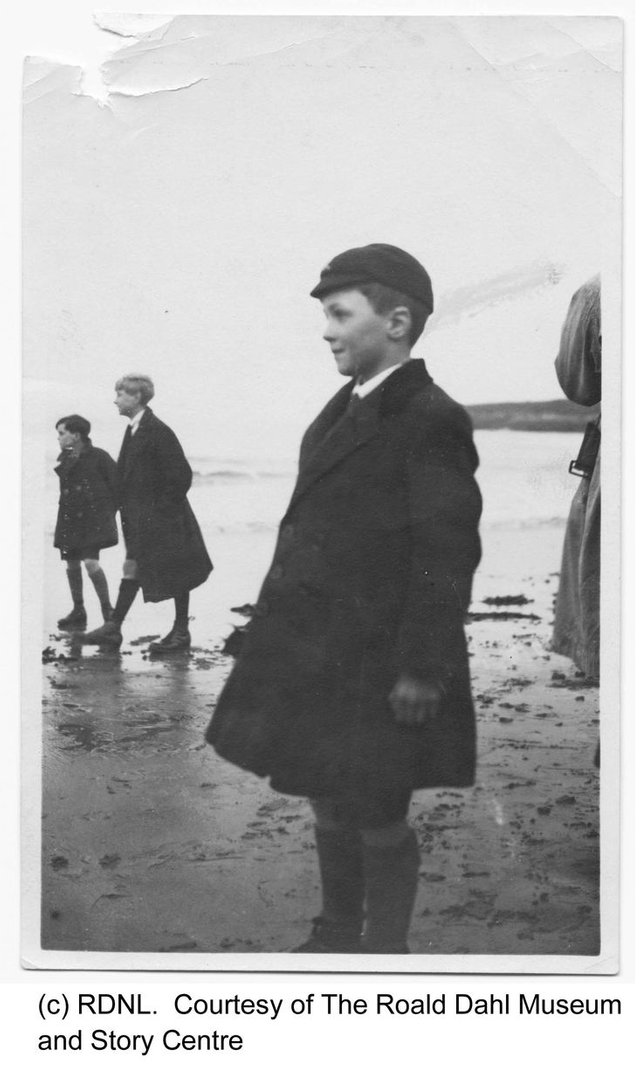
Dahl as a young boy
src
Dahl’s school years were filled with terror and pain, given that both these schools were very strict, the teachers frequently beat students, as did the older children. Repton seems to have worked around a very serious hierarchy, where the younger boys were treated as slaves of the older boys. The almost continual violence Dahl witnessed and endured at these schools served as inspiration for most of his writings, which often feature maniacal, vicious, evil adults as antagonists.
After graduating from Repton, Dahl refused any further education and took a job with the Shell Oil Company in Africa. In 1939, he joined a Royal Air Force training course and served as a fighter pilot in WWII. However, he wouldn’t fly for long. In September 1940, while flying over Egypt, his plane crashed after attempting an emergency landing in the desert and Dahl was seriously wounded (and even temporarily blinded).
Luckily, he was rescued and eventually recovered. He even returned to piloting through 1941, but had to be discharged in June, when he started severe headaches and blackouts.
After this, he was sent as attache to the British Embassy in Washington DC, where he apparently worked in intelligence (aka, as a spy) . During his time here, he met novelist C.S. Forester, who’d been asked by The Saturday Evening Post to write a story based on Dahl’s adventures as a fighter pilot. Forester, in turn, asked Dahl to send in some anecdotes and Dahl came up with a story called ‘A Piece of Cake’. And so, a writer was born.
"as I went on, the stories became less and less realistic and more fantastic. But becoming a writer was pure fluke. Without being asked to, I doubt if I'd ever have thought of it."
src
In 1943, he wrote his first children’s story, The Gremlins, about some strange, small creatures that lived on fighter planes and were responsible for all crashes. He invented the word ‘gremlins’, which was quite common for Dahl, who made up several words throughout his career. And yes, the movie of the same name is loosely based on this story.
Like with JRR Tolkien, many of Dahl’s stories initially started as bedtime tales for his five children. His writing career had begun two decades before, but what truly launched it was the publication of James and the Giant Peach in 1961, followed by Charlie and the Chocolate Factory in 1964, and other such huge hits, like Matilda (1988), The BFG (1983) and The Witches (1985) over the next thirty years.
Roald Dahl’s personal life was also filled with unfortunate events. His son Theo’s baby carriage was hit by a taxi when the boy was only four months old. The accident left Theo suffering with hydrocephalus for a while. This inspired a very upset Dahl to become involved with the development of the WDT valve, a device meant to alleviate the condition. But worse was to come.
In 1962, his seven year old daughter, Olivia, died of measles encephalitis, which left the author utterly heartbroken and consumed with guilt for not being able to do anything to help her. Throughout his life, Dahl never truly recovered from the loss of his eldest (and favorite) child and never, ever spoke about her. He dedicated his novel, The BFG, to her, which is really sad when you think that the Giant himself is an obvious alter ego for the writer (he’s a very tall creature who blows dreams into children’s bedrooms).
It is hard not to see, in the ending of The BFG, the wish of a father to be reunited with his beloved child.
src
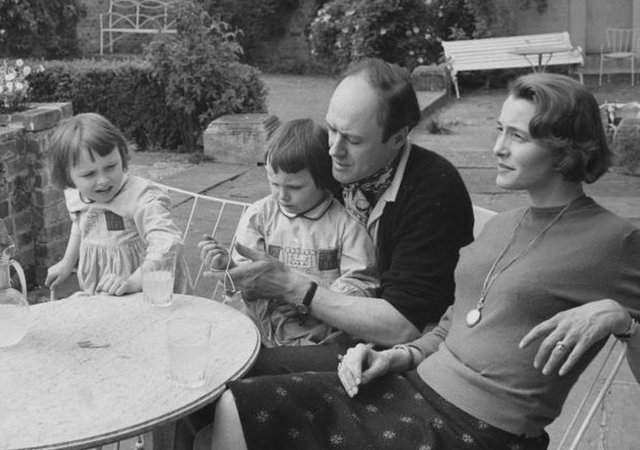
Dahl at home with his wife and daughters, Chantal and Olivia src
Three years later, his wife suffered of burst cerebral aneurysms while pregnant with their fifth child and Dahl cared for her (the situation was pretty grim, since she had to relearn how to walk and speak).
Something that’s truly marvelous about Dahl’s writing is that he always managed to side with the children and to view things from their point of view, which is what set him apart as unique, I think.
"He [Dahl] was mischievous. A grown-up being mischievous. He addresses you, a child, as somebody who knows about the world. He was a grown-up – and he was bigger than most – who is on your side. That must have something to do with it."
Quentin Blake (illustrator) src
Roald Dahl died at the age of seventy four from a rare type of blood cancer.
Legacy
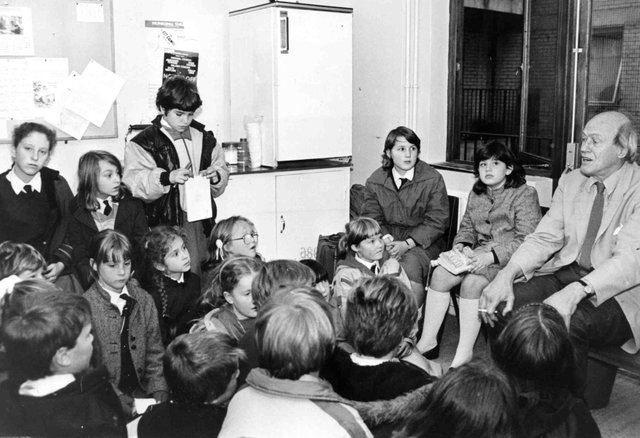
Roald Dahl at the National Institute for the Blind, reading to school children src
Roald Dahl was a truly remarkable individual, often visiting sick children in the hospital, he helped create the above mentioned medical device for hydrocephalus, and he left behind no less than thirty nine books meant to delight children.
His official legacy is obvious – his novels are constantly given new editions and reprints (and are unlikely to go out of print anytime soon) and they are still making movie or theater adaptations after them to this day.
Most importantly, Roald Dahl’s legacy lies in the fact that he inspired so many young children to love reading. His stories have a way of carrying through time and staying with you, long after you’ve become an adult. He taught kids not all adults are good and that people deserve to be punished in a very nasty fashion. He made kids feel powerful and that’s an incredible gift for someone who is constantly made to feel small and insignificant.
Authored by @honeydue
References: Wiki; NotableBiographies; The Monthly
Click on the coin to join our Discord Chat

Witness proposal is here:
Go To Steem Witness Page
In the bottom of the page type: adsactly-witness and press vote.

Use small letters and no "@" sign. Or, click here to vote directly!
Thank you!
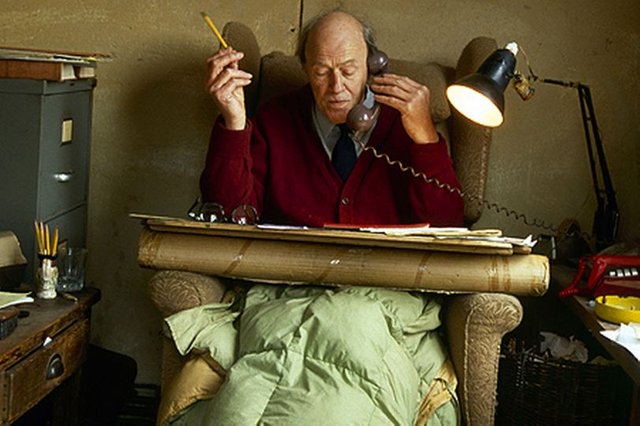
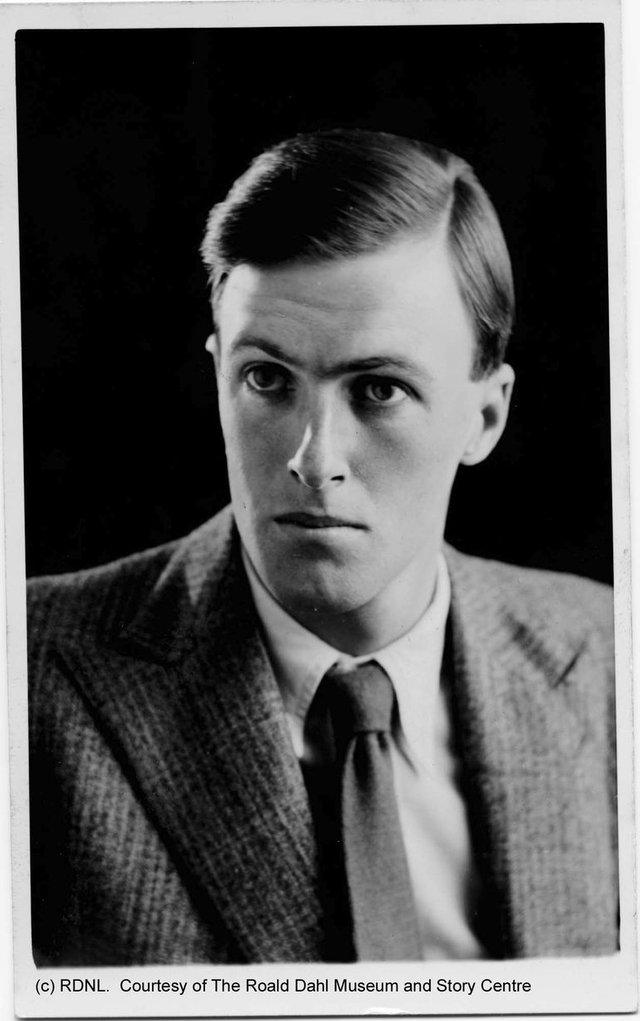
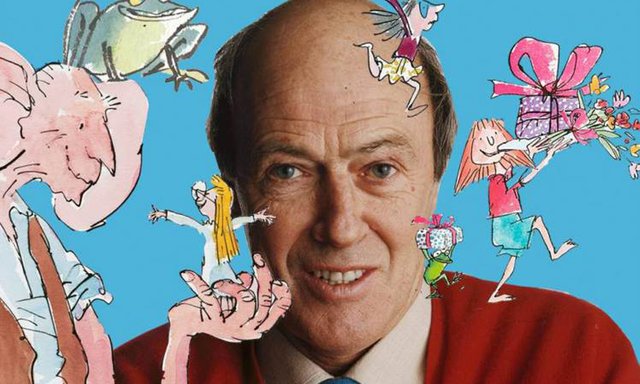
@honeydue, In my opinion life is Irony too because people who face roughest phase from childhood they become very unique creators and many of them influence lot of people. Enjoy your time ahead.
@adsactly Team, Keep up the good work.
Posted using Partiko Android
This is a great man whose talent was seen by many generations of people. To live such a difficult and dramatic life and stay after all this captivating man is a real feat. It is necessary to take into account his desire and diligence with which he attended boarding schools with sick children. The years of war and the death of his own child did not break a man and a talented writer in him. I really like this post. Thank you very much
Ronald Dahl is reminiscent of proverbial " Grass to Grace " stories typical of some childhood deprived in societies!!
His adulthood agonies as imposed by His Children's misfortunes could have fired his prossaic writings.
Nevertheless, typical of Cult Authors , there was a " thing" in his psysche inducing his uncommon sight to script the uncommon , but compelling!!
Yes, few of his literary works kept me spell bound!!
Thanks @adsactly for this opportunity
Culture show the history of everyone's
Certainly, Roald Dahl has been a writer who has played a relevant role in the development of contemporary children's and young people's literature, and entertained a wide range of readers. The influence that his work has had in the field of cinema has also been very valuable.
A life full of serious mishaps and losses that surely fed Dahl's creative vein.
Grateful for your great post, @honeydue.
Love Roald Dahl!
He was a great favorite of my mom's, and thus our whole family, through her influence.
Posted using Partiko Android
Hi, @adsactly!
You just got a 0.38% upvote from SteemPlus!
To get higher upvotes, earn more SteemPlus Points (SPP). On your Steemit wallet, check your SPP balance and click on "How to earn SPP?" to find out all the ways to earn.
If you're not using SteemPlus yet, please check our last posts in here to see the many ways in which SteemPlus can improve your Steem experience on Steemit and Busy.
I didn't know anything about his personal life and I'm kinda of shocked. I've always considered him as big as an Andersen or a Grimm, but on the 20th century 'cause he wrote so many remarkable stories for children that today are considered as classics. Excelent post. Thanks for sharing.
Roald Dahl is one of those writers that you imagine as part of his works, as one more character. I remember the first time I read about the childhood I had had, I made a kind of comparison or analogy of his life with his work. There is so much in his stories of that childish world that he had: bad and good adults, and children facing evil. As with other authors, I must admit that I first met Dahl through the films, especially Matilda and Charlie and the chocolate factory, and then I became interested in learning more about him as a writer. Matilda is perhaps one of the stories I have seen and read the most with my nephews and nieces. It is even more memorable, many years ago, that one of my nieces asked to be called Matilda. What a pity that this series has been finished, with it I learned of some authors that I didn't know and that I have promised myself to read. Thanks for sharing, @honeydue.